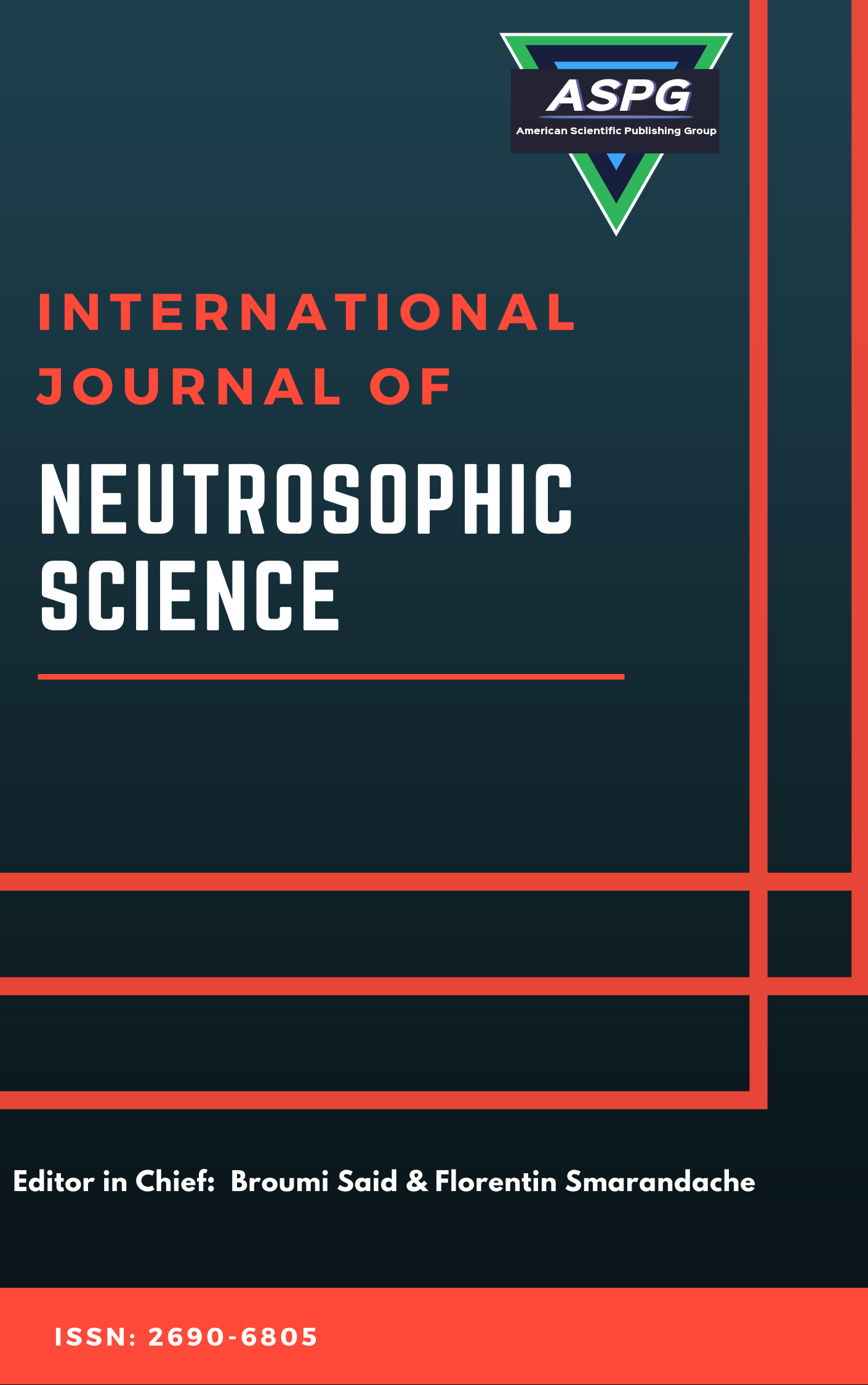

Volume 19 , Issue 1 , PP: 389-402, 2022 | Cite this article as | XML | Html | PDF | Full Length Article
D. M. Ramírez Guerra 1 * , Y. M. Gordo Gómez 2 , L. J. Cevallos Torres 3 , F. G. Palacios Ortiz 4
Doi: https://doi.org/10.54216/IJNS.190135
The goal of this work the critical criteria that affect social sports competition organization's arrangement. Then determine the relations between criteria with others and alternatives. So, the evaluation of the process of social sports competition contains many conflict criteria. The multi-criteria decision-making (MCDM) process is an effective tool for dealing with conflict and complex criteria. This work employs a new integrated model for dealing with the problem in an analytical hierarchal process (AHP) and Višekriterijumsko Kompromisno Rangiranje (VIKOR) methods under single-valued neutrosophic sets (SVNSs). SVNSs are the best tool for overcoming uncertainty and incomplete information. The AHP method is used for computing the weights of criteria then VIKOR is used for rank alternatives. The twelve criteria and five alternatives are used in this problem. An illustrative example is provided to present a robust hybrid model. This paper can help organizations and countries for arrangement and organize social sports completion with a scoring system design.
Social sports competition , AHP , VIKOR , SVNSs
[1] S. Zaizhen, D., Lee, Shouqian, "The rhythmic gymnastics project computer-aided action choreography and presentation systems.," Guangzhou Inst. Phys. Educ, vol. 25, no. 251, p. 94, 2005.
[2] A. Madureira, I. Pereira, P. Pereira, and A. Abraham, “Negotiation mechanism for self-organized scheduling system with collective intelligence,” Neurocomputing, vol. 132, pp. 97–110, 2014.
[3] H. Guofang and Z. Jing, “Design and practice of the competition schedule arrangement system of swimming social sports based on artificial intelligence,” in First International Conference on Real-Time Intelligent Systems, 2016, pp. 440–454.
[4] P.-H. Tsai and C.-F. Lin, “Creating a management strategy evaluation model for taipei city social sports center by using hybrid MCDM models," J. Test. Eval., vol. 45, no. 5, pp. 1820–1836, 2017.
[5] M. Abdel-Basset, Y. Zhou, M. Mohamed, and V. Chang, "A group decision-making framework based on neutrosophic VIKOR approach for e-government website evaluation," J. Intell. Fuzzy Syst., vol. 34, no. 6, pp. 4213–4224, 2018.
[6] M. Abdel-Baset, V. Chang, A. Gamal, and F. Smarandache, “An integrated neutrosophic ANP and VIKOR method for achieving sustainable supplier selection: A case study in importing field,” Comput. Ind., vol. 106, pp. 94–110, 2019.
[7] E. Bolturk and C. Kahraman, “A novel interval-valued neutrosophic AHP with cosine similarity measure,” Soft Comput., vol. 22, no. 15, pp. 4941–4958, 2018.
[8] S. Pramanik, S. Dalapati, S. Alam, and T. K. Roy, “NC-VIKOR based MAGDM strategy under neutrosophic cubic set environment,” Neutrosophic Sets Syst., vol. 20, no. 1, pp. 95–108, 2018.
[9] S. Pramanik and R. Mallick, “VIKOR based MAGDM strategy with trapezoidal neutrosophic numbers,” Neutrosophic Sets Syst., vol. 22, pp. 118–129, 2018.
[10] I. M. Hezam, M. K. Nayeem, A. Foul, and A. F. Alrasheedi, “COVID-19 Vaccine: A neutrosophic MCDM approach for determining the priority groups,” Results Phys., vol. 20, p. 103654, 2021.